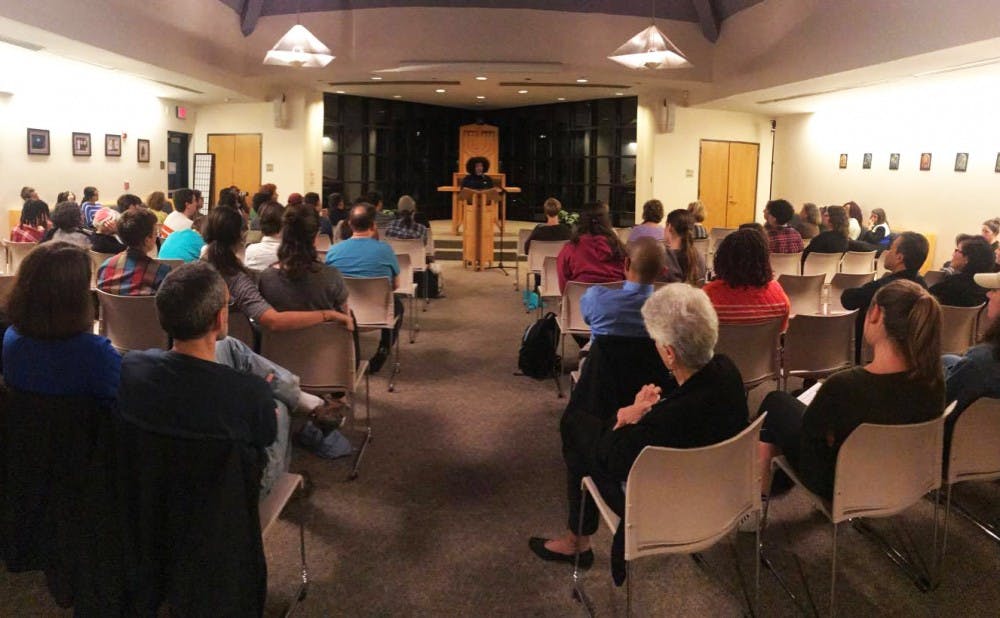Most people don’t assume Yavilah McCoy, an African American women, is Jewish.
“When I meet people for the first time and they ask me how I am Jewish," she said. "I say, ‘I am fine Jewish, how are you Jewish?'”
McCoy, chief executive officer of the international diversity consulting group Dimensions Education Consulting, talked about the intersection of being African American and Jewish at a Monday event in the Freeman Center for Jewish Life.
Prefacing her speech by explaining that she is "unapologetically black," McCoy immediately delved into the crosshairs of race, religion and power. For McCoy—who was named one of 16 faith leaders to watch in 2016 by the Center for American Progress—the intersectionality of race and religion is about understanding that she has the power to elicit change with her community and others.
When McCoy travels from places like New York and Boston to North Carolina, she said she feels her spirit settle, knowing that she is in the land where her ancestors, including her grandfather, came from. McCoy credited her family for giving her every reason to be proud of her religion and her color, and said that the struggles of their lives have flavored the very existence and power of her own.
“The work of obtaining racial justice can't be acquired in a five-step workshop,” she said. “It is a muscle that needs to be exercised regularly. We develop our muscle for ending racism every time we stand together and name the place, orientation and moment we are in.”
As for Jews of color, McCoy emphasized their need for a space to claim Judaism with new words and new values outside of a Eurocentric paradigm of whiteness. McCoy asked the crowd to eliminate their notions of “the typical Jew” being white.
McCoy added that racism, sexism and anti-Semitism constitute a fabric of oppression and encouraged the crowd not to avoid discussion of these "isms," but to instead push back against them.
“Education, healthcare, fair wages and mass incarceration—these are not just big words that flash across media but are instead real matters in which souls are at stake,” she said.
In this past year alone, McCoy has traveled to 35 college campuses across the country, encouraging students to pay closer attention to the concrete consequences of racism, ask questions and see themselves and their power as relevant to the future of the country.
McCoy noted that college was the time she realized she had a new "canvas" on which to paint any identity she chose.
“It was studying multiculturalism, religion, gender and Africana that made me take a closer look at the dynamics around me and made me feel empowered to elicit change,” McCoy said, “In those years, I developed a worldview and an activism that has stayed with me.”
She asked everyone to leave the event with a commitment to shaping the issues that affect everyone.
“Let us know our history. Let us know why Robert E. Lee's statue was taken down. Let us find the courage to walk not only in the footsteps that have come before us, but to create new shoes that will allow us to walk forward," McCoy said. "Let us tell truth in public and private."
Get The Chronicle straight to your inbox
Signup for our weekly newsletter. Cancel at any time.

